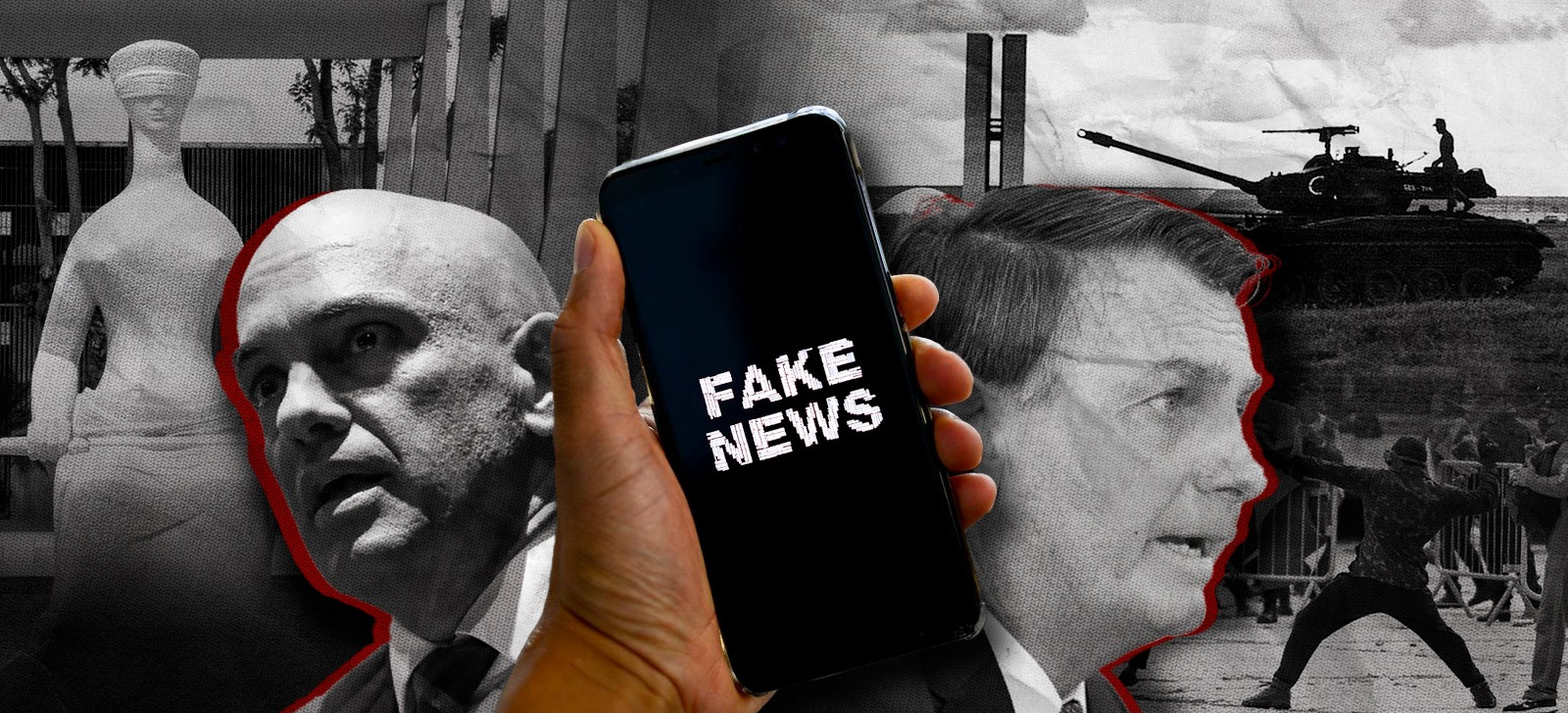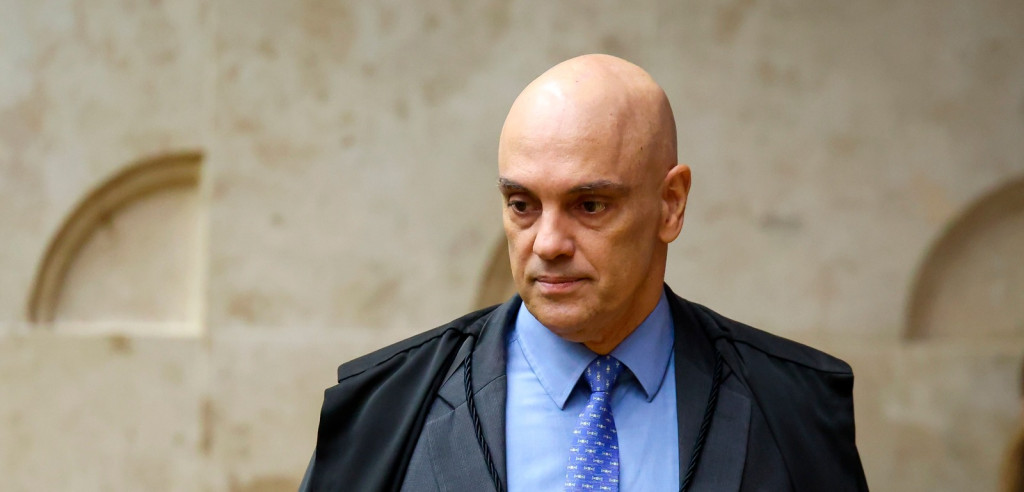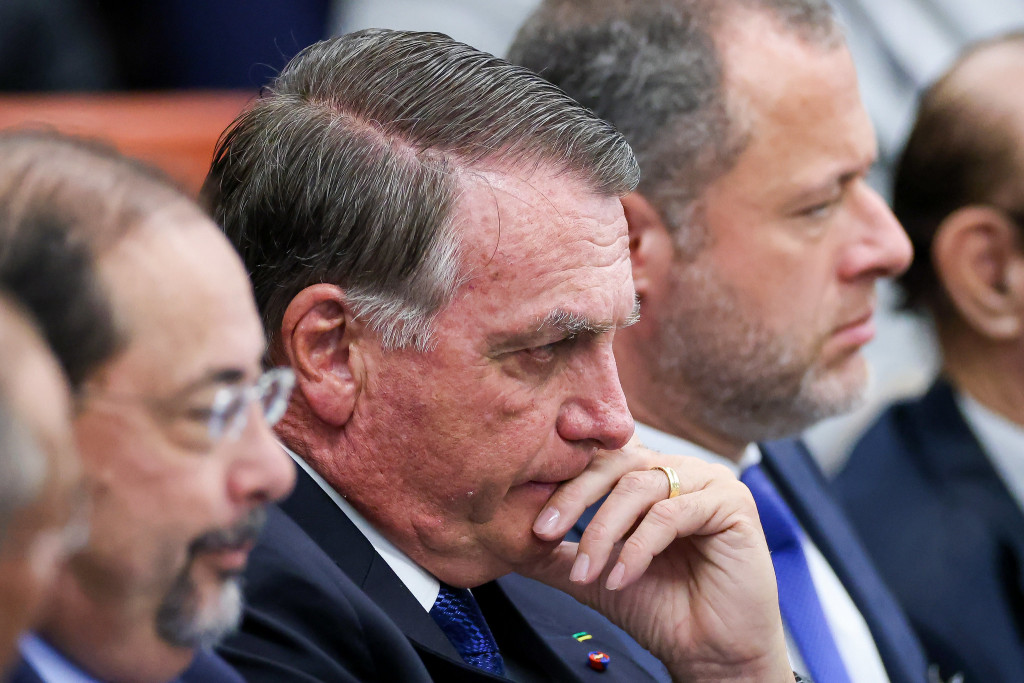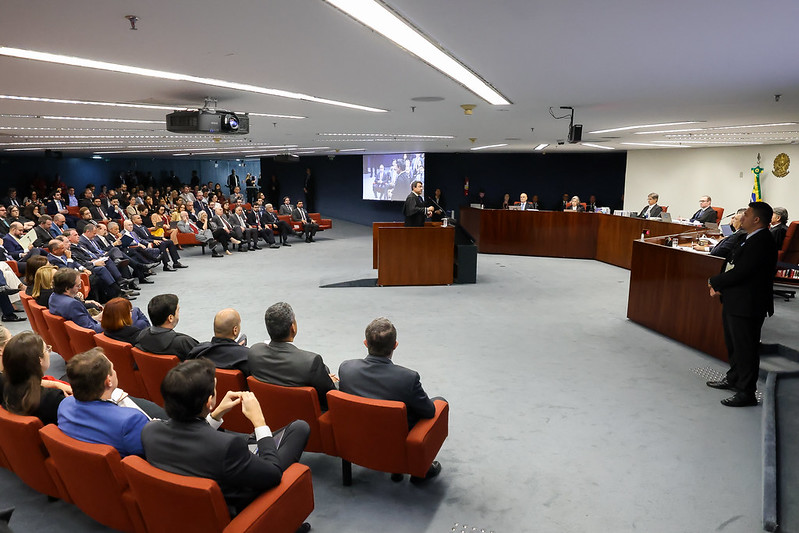Learn how the Brazilian far-right uses fake news to fuel the theory of a ‘parallel state’
01 de April de 2025

By Marcela Leiros – From Cenarium
MANAUS (AM) – In recent years, the spread of fake news has become one of the far-right’s main tools for manipulating public opinion and weakening democratic institutions. Through the dissemination of false information, the theory of the existence of a parallel and dictatorial state in Brazil emerged. On this Tuesday, 1st April – April Fools’ Day – experts told CENARIUM about how fake news are used for this purpose.
The parallel state can be defined as a “State of non-Law”, which decrees “arbitrary, cruel or inhumane laws”, and in which law is imposed by “leaders”. It is a term commonly used in the context of conspiracy theories, suggesting that a country’s government is controlled by external or powerless agents.
Lawyer and political analyst in Brasília (DF), Melillo Dinis notes that fake news create, more than a parallel state, a set of parallel universes detached from reality. “They are constantly mirroring a set of narratives devoid of grounding in reality. And the misinformation follows one another in a game where, besides a speed commanded by digital means, there is a bet on Fake Ethics, that is, the desire to believe in these parallel realities in the form of creed, sound and fury,” he emphasised.
One example of this is the narrative from right-wing political agents, both Brazilian and Latin American, that we live under a dictatorship (a non-democratic, or anti-democratic regime, ruled by a person or political entity where there is no popular participation) commanded by “leaders” such as Supreme Federal Court (STF) minister Alexandre de Moraes and President Luiz Inácio Lula da Silva (PT).

In January this year, former President Jair Bolsonaro (PL) – who became a defendant for attempted coup and four other crimes – stated, in an interview on the programme Os Três Poderes from Veja, that Brazil lives under a “dictatorship, where it is expected that the dictator leaves the Executive, and now someone from the Judiciary is leaving.”
The discourse is followed by allies such as the son of former President Eduardo Bolsonaro (PL/SP), who announced in March that he had taken leave from his position as a federal deputy to remain in the United States in order to seek, on American soil, punishment for those who violate human rights in Brazil. He directly mentioned Alexandre de Moraes, the rapporteur of investigations into the coup plot involving his father and allies.

Attacks on the Brazilian system also come from international agents, such as the ultraright President of Argentina, Javier Milei. On his social networks, the neighbouring country’s leader has already shared posts about an alleged “Lula Dictatorship”.
A survey conducted by AtlasIntel in 2024 showed that 47.3% of respondents believed that Brazil “lived under a dictatorship” by the Judiciary. Another 20.9% disagreed and thought that this power was fulfilling its role correctly. The survey also found that 16.7% of Brazilians say there is no “dictatorship”, but believe that many judges “abuse their power and exceed their authority”.
Democratic state
Lawyer and legal consultant Pedro Benedito Maciel Neto observed in the article “No, we do not live under a Judiciary Dictatorship” that trusting institutions, the State, and its Powers is crucial for a nation’s progress, and for that reason one cannot “conspire, criticise and discredit powers, congress members or ministers simply because their actions do not coincide with our way of seeing the world.”
“Honestly? I am very tired of hearing – even from lawyers, judges and prosecutors – that ‘we are heading for a dictatorship’, that minister Alexandre de Moraes is ‘authoritarian’. I am tired of hearing, from the unsuspecting and from ill-intentioned people, groundless criticisms of the Judiciary, which, in my view, bravely guaranteed democracy and prevented a coup d’état, engineered by the defeated candidate in the 2022 presidential elections,” the consultant quoted.
Pedro Benedito Maciel Neto’s statement refers to the attacks before and after 8 January 2023, when supporters and allies of Jair Bolsonaro planned and executed a series of acts of vandalism, invasions, and damage to public property in Brasília (DF), in an attempt to overthrow the government elected in the 2022 elections.
Last week, the former president and seven other allies became defendants after the First Panel of the Supreme Federal Court (STF) unanimously accepted the complaint from the Attorney General’s Office (PGR) for attempted violent abolition of the Democratic Rule of Law, attempted coup d’état and three other crimes.

Lawyer and university lecturer in the Law course at Uninassau Brasília (DF), Tati Gomes told CENARIUM that the phenomenon of disinformation is not new and that using the term “parallel state” is an attempt to give an official appearance to something that is to be dealt with on the fringes of legality and, consequently, punished regardless of who commits it.
According to her, the dissemination of fake news and disinformation is punishable, and this must be guaranteed by the State. “Any and all disinformation is biased and aims to serve the interests of those who propagate it. In this light, it is up to the institutions that make up the Democratic Rule of Law to seek mechanisms to combat and punish in order to guarantee stability,” she adds.

